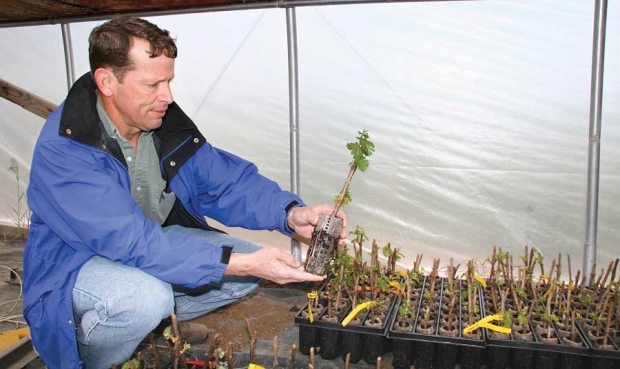
Jeff Sample sells certified grape plant material from Terroir Nouveaux Nurseries in Sunnyside, Washington. (Melissa Hansen/Good Fruit Grower)
When choosing a wine grape clone, Washington growers have little Washington-based field research to help guide their decisions. But useful information is available, if you know where to look and how to interpret the data.
Jeff Sample, owner of Terroir Nouveaux Nurseries, has around 75 clones and 35 varieties in the mother block of his certified grapevine nursery in Sunnyside, Washington. When he started his nursery in 2002, he had two main goals: offer varieties and clones that weren’t already in the foundation block managed by Washington State University; and, provide clones associated with high quality wines, such as the Wente and Dijon clones of Chardonnay.
Just as tree fruit nurseries improve apple varieties with new strains that are earlier maturing or more colored, clones of wine grape varieties give growers and winemakers the chance to fine-tune grape production by choosing specific attributes within a variety. Technically, a clone comes from a single individual—the mother vine—by asexual propagation (cuttings, grafting, and such) and is chosen for characteristics that set it apart from the standard variety.
Clones can be earlier or later maturing, be more or less vigorous, or have smaller berries or looser clusters, among other attributes. Some perform so well that they become known and distributed internationally, like the Dijon clones for Chardonnay or the German Geisenheim clones for Riesling.
“Fifteen years ago, clonal information was scattered around in many different places,” Sample said during a meeting of the Washington Association of Wine Grape Growers. “It was challenging back then to match numbers of French clones with those at the Foundation Plant Services at the University of California, Davis.”
But today, with YouTube videos and seemingly endless information on the Internet, he says it’s much easier to evaluate clones and their potential in Washington’s climate and soils.
Foundation Plant Services at UC Davis is part of the National Clean Plant Network for Grapes and, along with the Clean Plant Center Northwest at Washington State University’s Prosser research station and other centers, the network makes new clones and varieties available to the U.S. grape industry after new selections are imported, quarantined, and virus-treated.
Foundation Plant Services assigns its own unique number to different selections of the same clone that have undergone various virus elimination treatments. Clones available often have multiple numbers to help identify if it is a “clean” clone and help track its origin. The FPS number is the first number, followed by the French number or other original identification.
Where does Sample go to learn about new clones or clones that have potential for his nursery clients?
His four favorite sources are:
—National Grape Registry, a comprehensive website for clone and variety information (ngr.ucdavis.edu).
—Newsletter back issues of the Foundation Plant Services (found on the FPS website at fpms.ucdavis.edu/grapes).
—ENTAV-INRA wine grape variety and clone catalogs.
—Internet searches.
“Google works great to find information about particular clones and can reveal research data, nursery sites, and all kinds of information,” he said, adding that Riversun Nursery has excellent educational videos about clones on YouTube.
Research trials also offer valuable information. Most clonal research in the United States is done in California, he said.
Trials to evaluate clones require years of collecting vine data and analyzing wines. In Washington State, field trials and wine evaluations of clones have been primarily conducted by Ste. Michelle Wine Estates. (Read “The best clone for Washington,” Good Fruit Grower, from December 2012.)
ENTAV-INRA
Some clones come from California, but the most well known proprietary clones are from the trademarked collection of ENTAV-INRA, a brand name for two institutions that are authorized to create and certify grape clonal selections for commercial use. Four nurseries in the United States are licensed with ENTAV-INRA. Detailed vine and wine information are collected by ENTAV-INRA and published in the ENTAV-INRA catalog.
To decipher the catalog, Sample says you must first understand the meaning of a few key words. The catalog divides clones into three groups (A, B, and C) based on yield or production. Clones in group A are lower-yielding, higher in sugar, and are more preferred for winemaking. “Once you learn how to read the data, you can find the clones that are most highly rated,” he said.
“For example, if the catalog states ‘makes typical wines,’ it means the wines are good. And if the clone is rated above typical, it means the wines are really good,” he said.
In Sample’s own clonal trial in his nursery, he’s found that ENTAV-INRA clones performed as their catalog descriptions. “My experience with their performance as it relates to the literature is that that they perform as they should.”
When looking for red grape clones for Washington’s cool sites, Sample advised growers to stay away from Cabernet Sauvignon clones 08 and 21. “Based on data from California, they are late maturing and too high yielding for many of our sites in Washington.”
He suggested Cabernet Sauvignon clones that mature in mid-season, such as 02, 04, 10 and 47/337, a group that will work if yields can be controlled. Of that group, 02 is the latest maturing and 47/337 has yields in the mid-range.
Clones that are early maturing also have potential, including 06, 22/23, 24, 33/34 (also known as French 191), and ENTAV 169 and 412.
“I would focus on these if you have a later maturing site,” he said. “I really like 191 with its tight clusters and small berries. It’s been an awesome clone.”
For other varieties, he recommends:
—Cabernet Franc: The Category A clones 11 (214) and 12 (337).
—Malbec: 09 (Cot 180), 10 (Cot 46), and 12. Clone 10 (Cot 46) sets a big crop.
—Merlot: 15 (181), 20 (348), 25 (314), and 26 (343). All Merlot clones, including 1, 3, and 6 are great, he says, but 15 and 26 are the highest rated in the new ENTAV-INRA catalog.
“If you called me today and said, ‘I have this site that has marginal heat units of 2,300 growing degree days and can ripen Cabernet most of the time, what should I plant?’ I would recommend Cabernet Sauvignon 33/34 (French 191). It’s Category A and is rated to produce well-bodied wines with keeping quality. However, in the new catalog, there’s a warning that excessive water stress may block maturity.”
Cabernet Franc 11 (French 214) is another Category A that produces well-bodied wines, he noted.
He likes Malbec 09 (Cot 180) that is in Category B. For Merlot, he says the Merlot 26 (343) is a Category A and the highest rated clone. In the newest ENTAV-INRA catalog, Merlot 15 (181) is rated for making wines of distinction.
Lastly, he recommends Petit Verdot 02, with the caveat that it is late maturing and growers will need to control yield every year. •
ONLINE
The following are great sources of information about grape clones and provide growers and winemakers with information about how they might perform in the vineyard and winery, according to Jeff Sample of Terroir Nouveaux Nursery.
National Grape Registry website
(ngr.ucdavis.edu) – Designed to be a single, comprehensive site containing information about all grape varieties and rootstocks available in the United States, including nursery source contacts. Supported by University of California, Foundation Plant Services, and U.S. Department of Agriculture.
Foundation Plant Services website
(fpms.ucdavis.edu/grapes) – FPS is a self-supporting service department of UC that produces, tests, maintains, and distributes tested plant materials for use by California nurseries. Sample recommends reviewing old Foundation Plant Services newsletters that can be accessed under the site’s publications tab.
ENTAV-INRA Catalog of Wine Grape Varieties and Clones Cultivated in France – Catalog can be purchased from Foundation Plant Services (fpms.ucdavis.edu, phone: 530-752-3590).

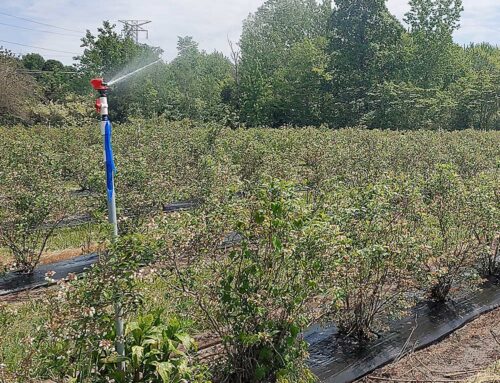
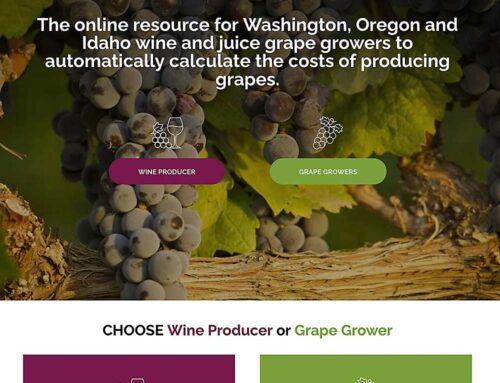

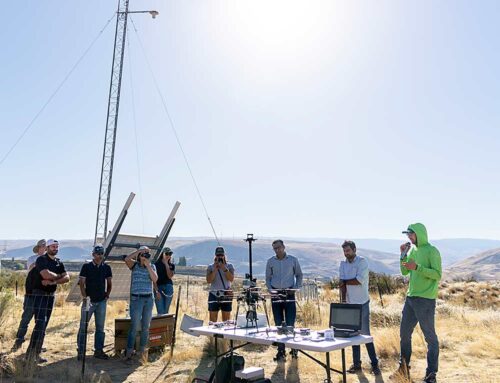
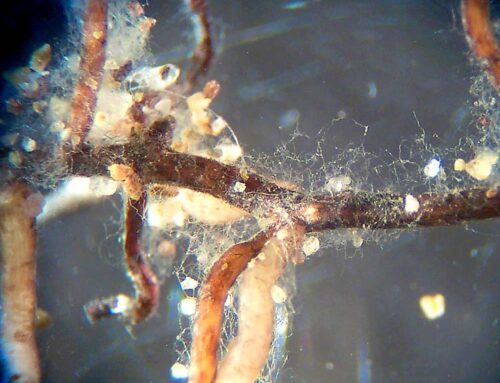
Leave A Comment